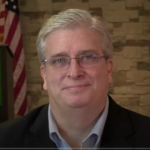The Florida Supreme Court on Friday ruled that Florida Gov. Rick Scott was within his rights to reject $2.4 billion in federal stimulus money to fund new high-speed rail service between Orlando and Tampa.
The following comments from experts at The Heartland Institute – a free-market think tank based in Chicago – may be used for attribution.
________________________________________
James M. Taylor, senior fellow for environment policy at The Heartland Institute (and a resident of Florida):
“Hurrah to Gov. Rick Scott for standing up for principle and refusing to put taxpayers on the hook for a high-speed rail system that few people would ever ride. The easy path would have been to take the federal tax dollars, but the principled path is to stand up for all taxpayers.
“Now that the Florida Supreme Court has affirmed Scott’s decision, we can get back to the business of taming excessive government spending, rather than encouraging it.”
For additional comment, contact James M. Taylor at [email protected] or 727/215-3192.
Christian Cámara, Florida director of the Center on Finance, Insurance, and Real Estate at The Heartland Institute:
“Contrary to what proponents claim, the $2.4 billion of stimulus money promised to Florida for a rail project is not ‘free money.’ It is additional debt future generations of Americans will struggle to pay off for a project that will never make a dime in profits.
“I applaud Gov. Scott for having the courage and principled conviction to reject this plan that Florida taxpayers would eventually have to bail out.”
For additional comment, contact Christian Cámara at [email protected].
Steve Stanek, managing editor of Budget & Tax News and a research fellow at The Heartland Institute:
“High-speed rail is one of the biggest boondoggles in America. Almost nowhere in the world does high-speed rail pay for itself. This includes rail lines in some of the most densely populated regions of the industrialized world, where high-speed rail is most effective. The United States has low population densities by comparison, which means high-speed rail lines here would probably be even bigger money-losers than they are elsewhere.
“Amtrak was supposed to become self-sustaining. Nearly 40 years later it still exists only because of huge taxpayer subsidies. It has never had a year in which it has paid for itself. High-speed rail likely would drain even more money from taxpayers. This court ruling will save taxpayers a lot of money.”
For additional comment, contact Steve Stanek at [email protected] or 815/385-5602.
John Nothdurft, director of government relations, The Heartland Institute:
“The availability of federal stimulus funds might have made SunRail seem attractive to some lawmakers, but it would have created an ugly mess for taxpayers. Boondoggles like these need to be eliminated, and if demand for such projects exists the private market will supply it.
“Gov. Scott rightly understands that these federal funds would have eventually dried up and the system’s operating costs would have inevitably exceeded revenues, leaving Florida taxpayers with a hefty bill.”
For additional comment, contact John Nothdurft at [email protected] or call 662/801-2707.
Maureen Martin, J.D., senior fellow for legal affairs at The Heartland Institute:
“The Florida Supreme Court’s unanimous ruling today upholding Gov. Rick Scott’s decision to reject $2.4 billion in federal stimulus funds for the high-speed rail line between Tampa and Orlando demonstrates the flimsy legal grounds for the court challenge.
“The attack was based on a violation of the constitutional doctrine of separation of powers, under which the executive branch – here the governor – cannot invade powers of the two other branches, the legislative and the judicial. State legislators argued a law they passed in 2009 forced the governor to take the money. But the funds involved are federal, not state, and they don’t flow through the legislature. Rather, the funds arrive directly in executive branch coffers. So the court’s ruling was correct.”
For additional comments, contact Maureen Martin at [email protected] or 920/295-6032.
________________________________________
The Heartland Institute is a 27-year-old national nonprofit organization based in Chicago. Its mission is to discover, develop, and promote free-market solutions to social and economic problems. For more information, visit our Web site or call 312/377-4000.




